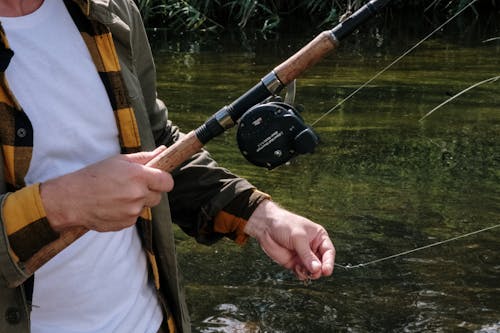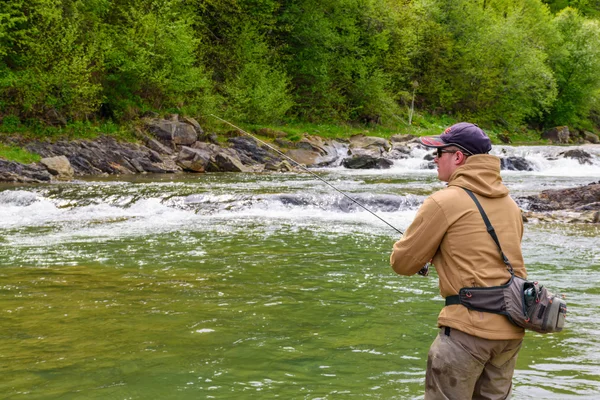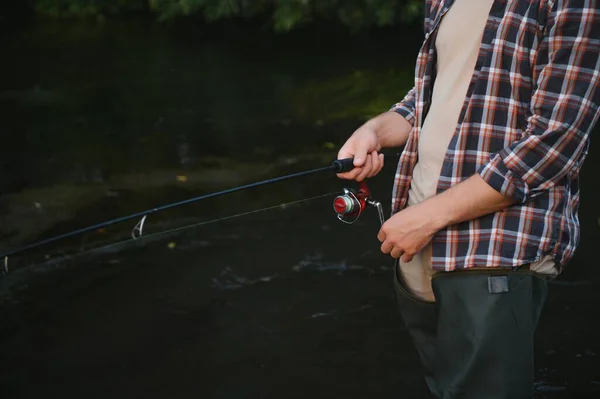How River Conditions Affect Your Catch When Freshwater Fishing in Portland
With its network of rivers, tributaries, and lakes, Portland, Oregon is a dream location for anglers. From the Willamette to the Columbia River and everything in between, the city offers plenty of year-round fishing opportunities. But for those serious about freshwater fishing in Portland, understanding river conditions is just as important as selecting the right bait or lure. Water levels, temperature, clarity, and flow patterns all play significant roles in determining your success on the water.
Let’s dive deep into how river conditions influence your catch when freshwater fishing in Portland, and how to read and adapt to them for better results.

1. Water Levels: Too High, Too Low, or Just Right?
Water level is one of the first conditions to check before heading out. The U.S. Geological Survey (USGS) provides real-time river data for Portland’s rivers, and many local anglers consult it religiously.
- High Water: After a heavy rain or snowmelt, rivers like the Willamette can swell significantly. High water disperses fish, pushing them out of their usual holding areas. In these conditions, fish may seek refuge near riverbanks, back eddies, or behind submerged structures where the current is weaker.
- Low Water: During summer or droughts, river levels drop. This can make fish skittish due to increased visibility and warmer temperatures. You’ll often find fish hiding in deeper pools or shaded cover to avoid the heat.
- Optimal Water Levels: Moderate, steady river levels are ideal for freshwater fishing in Portland. Fish tend to behave more predictably, and oxygen levels remain balanced, which keeps fish actively feeding.
2. Flow and Current Speed: The Pulse of the River
River flow refers to how fast the water is moving and can drastically affect where fish choose to be. A slow-moving river can feel like a lazy day, but for anglers, this usually means adjusting your strategy.
- Fast Currents: Fish typically avoid swift, turbulent areas unless they’re chasing food. Trout and smallmouth bass will often settle behind rocks, in eddies, or deep holes where the current breaks.
- Slow Flows: These tend to occur in the summer when water is low. Fish are more dispersed, and it may require more patience and finesse techniques to get bites.
- Fishing Tip: When freshwater fishing in Portland, cast upstream and allow your bait or lure to move naturally with the current. This mimics live prey and increases your chances of hooking a catch.
3. Water Clarity: Seeing is Believing (or Not)
Water clarity influences a fish’s ability to see your bait. Portland’s rivers can fluctuate in clarity depending on rainfall, sediment runoff, and algae bloom.
- Clear Water: Fish can see better, but so can you. In these conditions, use lighter line, natural-colored baits, and stealthy presentations. Fish are more cautious when visibility is high.
- Muddy or Stained Water: After rainfall or upstream activity, sediment can cloud the water. This makes fish rely more on their lateral line to sense vibrations and sound. In this case, use noisy lures, bold colors, or scented baits to attract attention.
- Pro Tip: When freshwater fishing in Portland, especially after a storm, focus on slower-moving waters where sediment has had time to settle for better clarity and more active fish.

4. Water Temperature: The Hidden Trigger
Water temperature affects fish metabolism, feeding patterns, and even where they position themselves in the water column. Most freshwater species in the Portland area, including steelhead, salmon, smallmouth bass, and trout, have preferred temperature ranges.
- Cold Water (Below 50°F): Fish become sluggish and less willing to chase. Use slow-moving baits or bottom presentations. This is common during winter and early spring.
- Ideal Temps (50°F–68°F): Fish are most active and aggressive. Feeding is frequent, and you’ll have the best odds of success.
- Warm Water (Above 70°F): Fish may become stressed and retreat to cooler, deeper spots. Fishing early in the morning or late in the evening is more productive during hot summer days.
Monitoring temperature can be as simple as using a fishing thermometer or checking reports from local bait shops and online forums dedicated to freshwater fishing in Portland.
5. Tides and Urban Influence: The Unique Case of Portland
One factor that’s often overlooked in freshwater fishing in Portland is the tidal influence. The lower Willamette River is tidal up to the falls at Oregon City. This means water levels and flow can fluctuate even without rainfall or snowmelt.
- Tidal Shifts: Incoming tides push saltwater and brackish water into the Willamette, changing the behavior of fish. Outgoing tides usually increase clarity and lower water levels, which can push fish into deeper holes.
- Urban Runoff: Being a metropolitan area, Portland’s rivers are affected by stormwater drainage and pollution. Fishing is generally best a few days after rain events, once the water has settled and clarity improves.
6. Seasonal Changes: Timing Is Everything
Each season brings its own set of river conditions—and challenges.
- Spring: Snowmelt increases water levels and cools temperatures. Fish are active, but the rivers can be unpredictable. Focus on tributary mouths and slower backwaters.
- Summer: Low, warm water prevails. Fish go deep or become nocturnal. Early morning and late evening are prime times.
- Fall: One of the best times for freshwater fishing in Portland. Cooler water temperatures bring fish closer to the surface and increase feeding activity, especially for salmon and steelhead.
- Winter: Cold water and strong currents dominate. Fish are sluggish. Try fishing deep holes with slow bait movement.

7. Reading the River: Tips from Locals
The best anglers are students of the water. Here are some locally favored strategies:
- Observe bird activity—diving birds often indicate baitfish presence, which means predator fish aren’t far behind.
- Watch for surface disturbances like rolling fish or jumping baitfish.
- Learn to identify seams, where fast and slow currents meet—these are fish highways.
Join local Facebook groups or forums dedicated to freshwater fishing in Portland to stay up to date on real-time conditions, techniques, and hot spots.
While gear, bait, and location are all critical to angling success, mastering river conditions is what separates good anglers from great ones. When freshwater fishing in Portland, always take a few minutes before launching to assess water level, clarity, temperature, and flow. These environmental cues will guide your strategy and maximize your chances of landing that prized catch.
In Portland, the rivers are alive and ever-changing. The fish are there—you just have to learn to read the water.
